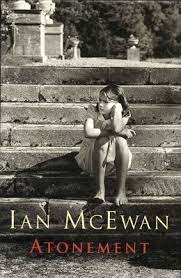The Power of Redemption: Exploring Ian McEwan’s “Atonement”
Published in 2001, Ian McEwan’s novel “Atonement” is a captivating exploration of love, guilt, and the complexities of human relationships. Set against the backdrop of World War II, the story follows the lives of Briony Tallis and her family, whose lives are forever changed by a single act of deception.
At the heart of the novel is the theme of atonement – the idea that one can seek forgiveness and redemption for past mistakes. Briony’s decision to falsely accuse Robbie Turner, her sister’s lover, sets off a chain of events that reverberate throughout their lives. As the consequences unfold, McEwan masterfully delves into the intricacies of guilt and remorse.
The narrative is rich with symbolism and metaphor, challenging readers to reflect on the nature of truth and perception. Through his lyrical prose and vivid imagery, McEwan paints a poignant portrait of love in all its forms – romantic love, familial love, and self-love.
“Atonement” is a thought-provoking meditation on the power of storytelling and its ability to shape our understanding of reality. As readers journey through Briony’s attempts to make amends for her past misdeeds, they are confronted with profound questions about responsibility, forgiveness, and ultimately, what it means to truly atone.
McEwan’s novel has garnered critical acclaim for its masterful storytelling and emotional depth. It has been adapted into a successful film, further cementing its status as a modern classic in literature.
Whether you’re drawn to tales of love and loss or stories that challenge your perceptions of morality, “Atonement” offers a compelling narrative that will linger in your thoughts long after you’ve turned the final page.
Unveiling Layers of Redemption: Five Key Insights into Ian McEwan’s ‘Atonement’
- Pay attention to the symbolism used throughout the novel.
- Analyse the different perspectives of the characters involved in the story.
- Consider how the theme of guilt and redemption is portrayed in the book.
- Explore the impact of misunderstandings and misinterpretations on the plot.
- Reflect on how Briony’s character development influences the overall narrative.
Pay attention to the symbolism used throughout the novel.
In Ian McEwan’s “Atonement,” paying attention to the symbolism woven throughout the novel is key to unlocking its deeper layers of meaning. From the significance of the vase shattered in a moment of misunderstanding to the haunting presence of the typewriter symbolising Briony’s guilt, each symbol holds a profound significance that enriches the narrative. By delving into these symbols, readers can uncover hidden truths and explore the complexities of love, betrayal, and redemption that lie at the heart of this compelling story.
Analyse the different perspectives of the characters involved in the story.
In Ian McEwan’s novel “Atonement,” delving into the different perspectives of the characters involved in the story is crucial to unraveling its intricate layers. By examining the narrative through the eyes of Briony Tallis, Robbie Turner, and other key players, readers gain insight into their motivations, fears, and desires. Each character’s viewpoint offers a unique lens through which to interpret events, highlighting the complexities of human relationships and the subjective nature of truth. Analysing these diverse perspectives not only enriches our understanding of the plot but also challenges us to question our own assumptions and biases as we navigate through a web of love, betrayal, and redemption.
Consider how the theme of guilt and redemption is portrayed in the book.
In Ian McEwan’s novel “Atonement,” the theme of guilt and redemption is intricately woven into the fabric of the narrative, inviting readers to ponder the complexities of human nature. Through the character of Briony Tallis and her pivotal act of deception, the novel explores the profound impact of guilt on individuals and their quest for redemption. McEwan skillfully portrays the internal struggles faced by his characters as they grapple with their past mistakes, highlighting the enduring power of remorse and the possibility of seeking forgiveness. By delving into the nuances of guilt and redemption, “Atonement” offers a poignant reflection on the transformative journey towards atonement and the enduring hope for absolution.
Explore the impact of misunderstandings and misinterpretations on the plot.
Delving into Ian McEwan’s “Atonement,” it becomes evident that the impact of misunderstandings and misinterpretations plays a pivotal role in shaping the intricate plot. Through the lens of flawed perceptions and misguided assumptions, the characters navigate a web of consequences that stem from miscommunication. These misunderstandings not only drive the narrative forward but also serve as a poignant reminder of the fragility of human relationships and the power of words to alter destinies. As readers unravel the layers of deception and misconception woven throughout the story, they are compelled to reflect on how easily truth can be distorted and how profoundly it can influence the course of lives intertwined in a complex tapestry of emotions and desires.
Reflect on how Briony’s character development influences the overall narrative.
Reflecting on Briony’s character development in Ian McEwan’s “Atonement” offers a profound insight into the intricacies of the novel’s narrative. As we witness Briony’s journey from a young girl filled with innocence and naivety to a woman burdened by guilt and remorse, we are compelled to reconsider our understanding of truth, perception, and the consequences of our actions. Her transformation shapes the very fabric of the story, highlighting the power of personal growth and self-awareness in shaping one’s destiny. By delving into Briony’s psyche and motivations, readers are invited to explore the complexities of human nature and the enduring impact of our choices on both ourselves and those around us.

